One aircraft that I have always wanted in my collection was the Cessna (T-50)
Crane used by the RCAF in large numbers during World War II. It was
realized very early in the war that the RCAF would need a great many training
aircraft and when the nearly bankrupt Cessna Aircraft Company showed up in
Ottawa to demonstrate their new twin engine trainer, the RCAF funded the
production of this aircraft ... and saved Cessna from going under!
Cessna delivered over 1000 Cranes to equip the British Commonwealth Training
Plan and 7829 was one that was based at Moose Jaw with #19 Service Flying
Training School. It was equipped with Jacobs engines and fixed pitch
wooden props. After the war this aircraft was sold to a farmer near
Weyburn, Sask and it sat out in the weather for 30 years before being rescued
for restoration by the dedicated crew of volunteers at the Western Development
Museum at Moose Jaw.
The kit used in this article is the limited production run by Czech Models in
1:48 scale; a multi-media kit with options for different versions of the
"Bamboo-Bomber". Two of the options are for the Jacobs and Lycoming
engines and metal props which represent the constant speed props on the MkII
version but no wooden props for the MkI
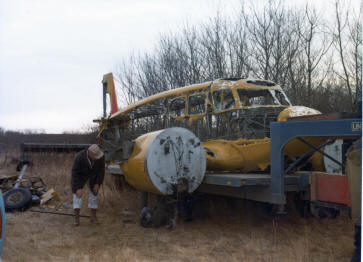 |
|
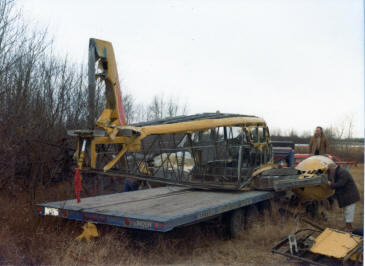 |
|
7829 being loaded onto a flatbed trailer for transport to Moose Jaw. |
|
Thirty years of prairie weather made it look like an impossible task. |
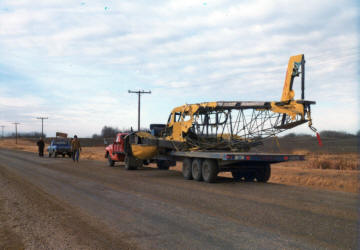 |
|
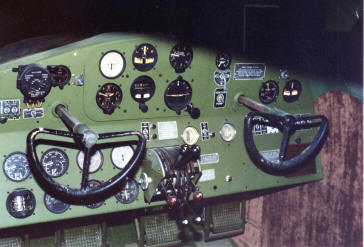 |
|
On the road to it's new home in the WDM |
|
The restored instrument panel looks like new after careful restoration |
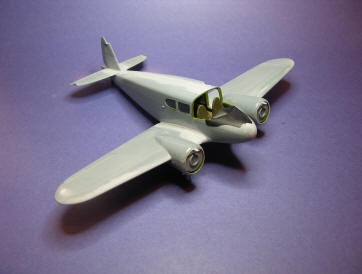 |
|
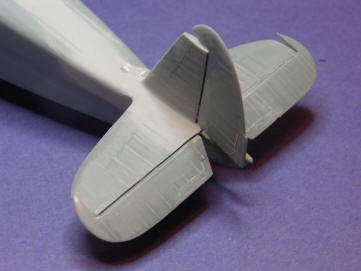
|
|
The model airframe went together very quickly but I neglected to photograph
the interior which has optional instrument panels and a lot of photo-etch
pieces. |
|
The external detail is a bit over-done with heavy rib-stitching which I
sanded down with 600 grit wet-dry paper |
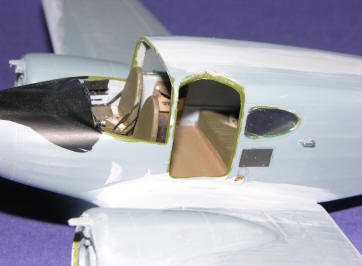 |
|
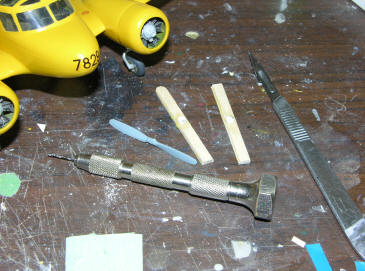 |
|
The open door gives a good view of the interior which is set up as a basic
multi-engine trainer. |
|
No wood props...carve your own from laminated coffee stir sticks. Cut
to length, glue a hub in the centre and start whittling. |
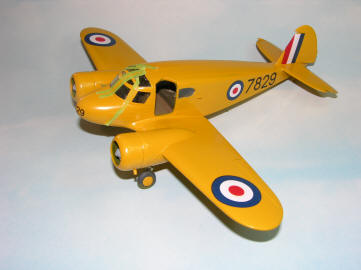 |
|
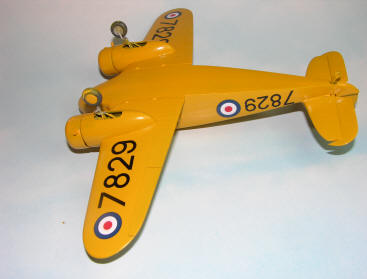 |
|
The model painted with Polly Scale and gloss coated. The roundels and
fin flash are from the spares box and the serials printed on an Epson 680
printer. |
|
The weak point in this kit is the landing gear which is very flimsy.
This one was broken 4 times. |
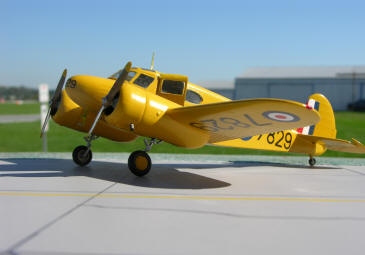 |
|
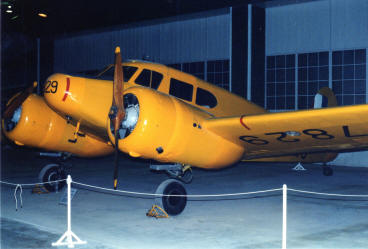 |
|
7829 finished in 1:48 scale |
|
7829 finished in 1:1 scale |
|
|
|
|
|
The real thing sits today in the Western Development Museum at Moose Jaw in
front of a section of a hangar from the relief field at Mossbank, Sask. |
|
The fonts
for the serials were a free download from Simmers Paint Shop.com |